Young Oranje would usually be the vanguard for the Oranje future, but the two strikers Zivkovic and Sam Lammers demonstrated against Young Scotland why these two will never reach the top. It seems Young Oranje again will miss out on a big tournament.
The strikers in the Under 17 and Under 19 teams however did show their class. Daishawn Redan, skipper of the EC title winner and now striker of Under 19 did what he always does: score. And Myron Boadu, of AZ, did the same.
It was a week in which the KNVB deployed their new strategy. “Closer to the clubs”. The aim is to get clubs to be more generous with allowing their talents to play international matches. By organising matches vs England for instance, as the English seem to dominate all the youth tournaments. Director Football Development Art Langerer: “All our youth teams struggle against England, we had two defeats, one draw and one win this week. But I think that is good. We need good opponents to grow.”
Oranje does seem to win all the matches vs the weaker nations, as Under 19 wiped Israel away, Under 18 beat Russia and Under 19 crushed the Czechs 5-1.
Another problem the KNVB faces is the focus on the ball. Erwin van der Looi, the Young Oranje coach, has many good attacking midfielders to pick from but they all play in the ball. “I am having a hard time finding one midfielder with depth, who runs in behind. Only Guus Til, but he’s now close to the senior team. It’s a bit un-Dutch apparently.” The club do pick it up now and at Ajax, young Dani de Wit is a player who has that penetrative power. The youth coaches of the 15 year olds and working now to generate more different types of midfielders. Langerer: “It is time we also assess players for their work off the ball.” We have been lauding the likes of Redan (Chelsea), Boadu (AZ) and Ihattaren (PSV) for their creativity on the ball and rightly so, but we need other types of players too.
Another project Langerer started are the so-called master classes. Getting the exceptional talents together for a coaching day with Ronald Koeman, or semi-retired coaches like Van Marwijk or a coach in between jobs Peter Bosz or Frank de Boer. Why couldn’t Peter Bosz for instance analyse an up coming opponent of Oranje? Bosz: “Yes, that was mentioned to me, and why not? If it fits the schedules, bring it on.”
With all these supportive activities to bring Dutch football back to where it belongs, it is time for check in on our Golden Boys. We have Mathijs de Ligt already as Ajax skipper, Frenkie de Jong as new Oranje playmaker, Donyell Malen has presented himself at PSV, Malacia is a starter at Feyenoord. We do seem to have some spectacular talents. Lets have a look with Piet de Visser (master scout for Chelsea) and Aad de Mos.
De Visser – 83 years old- has seen them all. He saw Cruyff, Keizer and Van Hanegem break, he was there when the generation Van Basten and Gullit presented themselves all the way via Sneijder and Van Persie and Robben to the current lot of talents. “These waves of talents, they sometimes skip a generation. It always comes in waves. But, I think we have some players with amazing potential. I’ll name De Ligt and Fosu-Mensah as examples. De Ligt has a wonderful personality as well. He knows when he makes mistakes and works on it during the week. This is so underrated, a player working on himself, being self-motivated. Fosu-Mensah is a beast and is making big steps in the PL. I can really see a new stream of tremendous players come through.”
De Visser is still working and scouting for Chelsea. The old master is annoyed with the criticism the London based club gets. “Chelsea doesn’t sign the talents for the trade, as some people suggest. They really make development plans for every talent. The Chelsea talents play at a high level and play 40 matches on top level every season. And when they make it to the squad for the first team, the club wants to loan them out, so they can get experience and Chelsea is happy to pay the salaries of the players. And when players do want to leave, Chelsea won’t block them. Look at Bruma, Ake and Van Aanholt. They have done really well for themselves.”
De Visser is very excited about the current lot at Chelsea: Daishawn Redan and Juan Castillo. Both made their move in 2016, from Ajax to Chelsea. And Redan in particular impresses.
“Redan is an ice cool striker. It’s something unfathomable isn’t it. The ability to be cool and collected and score. It’s hard to train too, you have to have it. Redan is very explosive and quick. Redan scored 20 times in 24 international games for Oranje Under 17. Redan scored four times in five matches in the Youth League for Chelsea, and lost the finals vs Barcelona.
Juan Castillo is a creative midfielder. A player with good vision and a killer pass. He is less developed than Redan but according to De Visser, this can change just like that with youngsters.
Aad de Mos is not too positive about these youngsters making their move abroad so early. “I think most are being lured by their agents. Isn’t it much better for these kids to have two seasons of Eredivisie football in their backpack. Take De Ligt, do you think he would play 34 matches for Man City, if he’d go there? No. It’s important to play. Now Justin Kluivert is a benchwarmer at Roma. Why? He could have played Champions League football with Ajax this season.”
Joshua Zirkzee made his first minutes for Bayern Munich in the preseason and even scored his first goal. He made the move in the summer of 2017 from Feyenoord to Munich and the competition there is killing.
Tahith Chong is also from the Feyenoord Academy and made his way to Man United in 2016. He impressed in their youth system and as a left footed right winger has a Robbenesque signature move. He’s also quite mature and doesn’t mind making dirty yards for the team. Mourinho took him along to the US in the preseason and used him vs Club America, against which he had an assist.
Imannuel Pherai was transferred to Dortmund in the 2017 summer from the AZ Academy. The holding mid had a tremendous season with AZ under 16. Ajax and Man United were eager to sign the right legged playmaker. He’s got a good shot and is a fierce tackler as well. He is said to have qualities rarely seen in German kids.
Bobby Adekanye came to Holland from Nigeria at a young age. He started with the amateurs and was picked up by Ajax. In 2011 he moved to Barcelona and came to PSV in 2014. After that, he made his move to Liverpool. The 19 year old can play all attacking positions.
Nathangelo (all those names!) Markelo. A surname from Volendam, a first name and appearance from somewhere exotic. Markelo made his move from Volendam straight to the EPL. The Oranje youth international (right back) is playing in Unsworth’s under 23 team for Everton. The right footer can also play in midfield.
Javairo Dilrosun switched from Ajax to Man City in 2014 and when he was released there, he signed for Hertha BSC. The left winger made his debut already in the Bundesliga and has his first assist. Speed is his friend.
Leandro Fernandes is a central midfielder, who moved from PSV to Juventus. He went along with Juve to the Champions Cup, like Zirkzee and Chong and he played vs Bayern, Benfica, MLS All Stars and Real Madrid. A real playmaker, who played for all rep team in Holland and is hoping to get his debut for Juve this season.
Last but not least, Arnaut Danjuma Groeneveld. He signed for Club Brugge and will make his debut in the Champions League. “This kid will play in Oranje in 3 years time.” At NEC we knew him as Arnaut Groeneveld, at Club, he will play with Danjuma on his back. Aad de Mos, who follows the Belgian competition like the Dutch one, has seen if within 45 minutes. Danjuma made his debut for Club and De Mos tweets: “The Dutch top clubs were caught napping again. A top player signed for Club Brugge!”. Now Arnaut is a big name in Belgium, everybody wants a piece of him. Club Orange is the nickname of Club Brugge now. Ryan Donk started the Dutch invasion, Ruud Vormer is their playmaker, Denswil is a starter, Vermeer and Clasie went there and now we see Amrabat there as well. And now Danjuma, how did he get there? Well, it started with PSV Eindhoven but two years ago he left to play for NEC, as he was plagued by injuries and never got into a PSV team. He impressed there, so much so that interest came quickly. Danjuma: “It’s a myth that the Dutch top clubs didn’t come. They did. There was interest from all over, Germany, Italy, England and France. But I follow my intuition. Club Brugge is the right step up for me. And they really wanted me. I need to feel that. And yes, Man City was also in the race, I can say that much.” The Nigerian born could also select Nigeria, even though he played for Oranje in the youth team. “The Dutch national team is my dream, but I also feel African. I would seriously consider playing for them, but my real desire is to get to the Oranje senior team.”

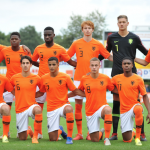
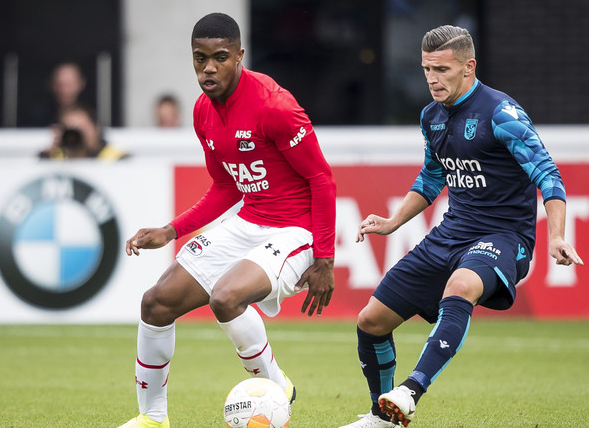
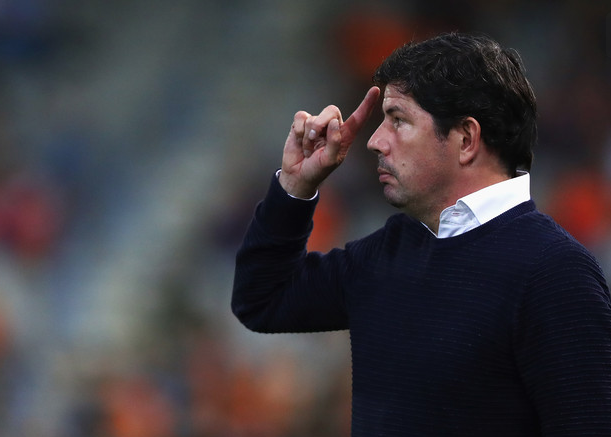
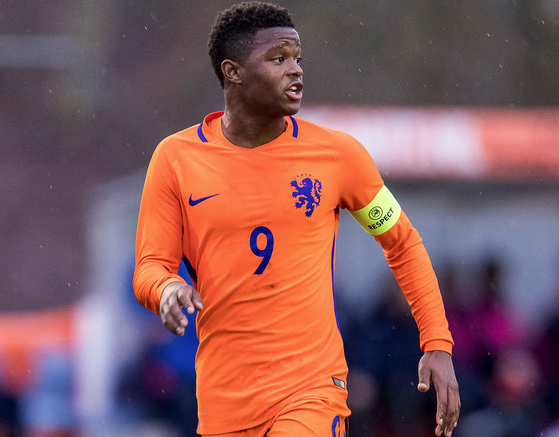
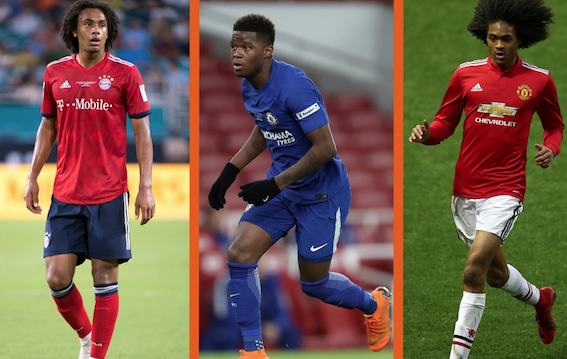
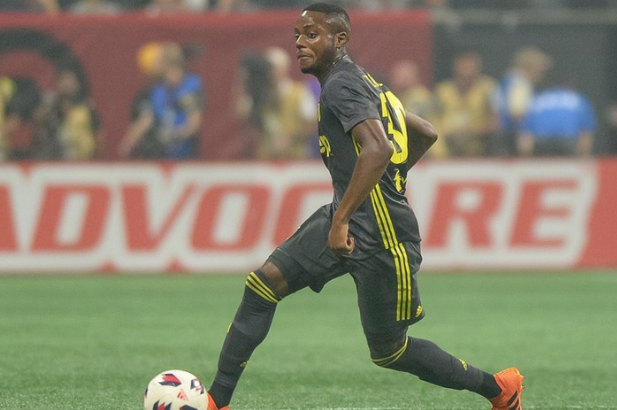
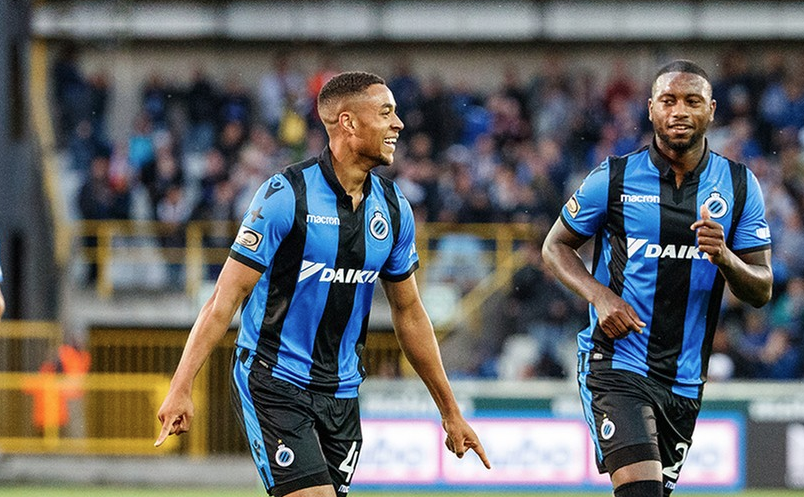
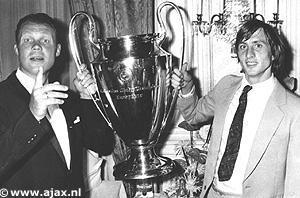
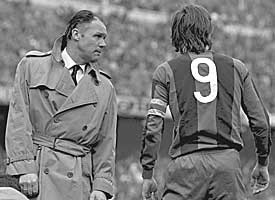
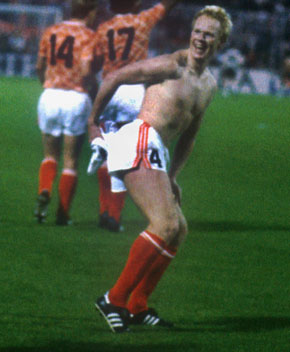
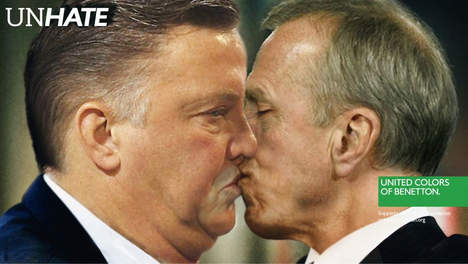
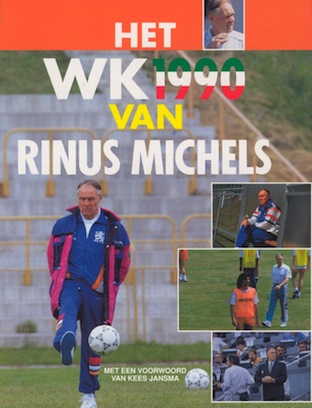 The book written on that weird 1990 campaign…
The book written on that weird 1990 campaign…